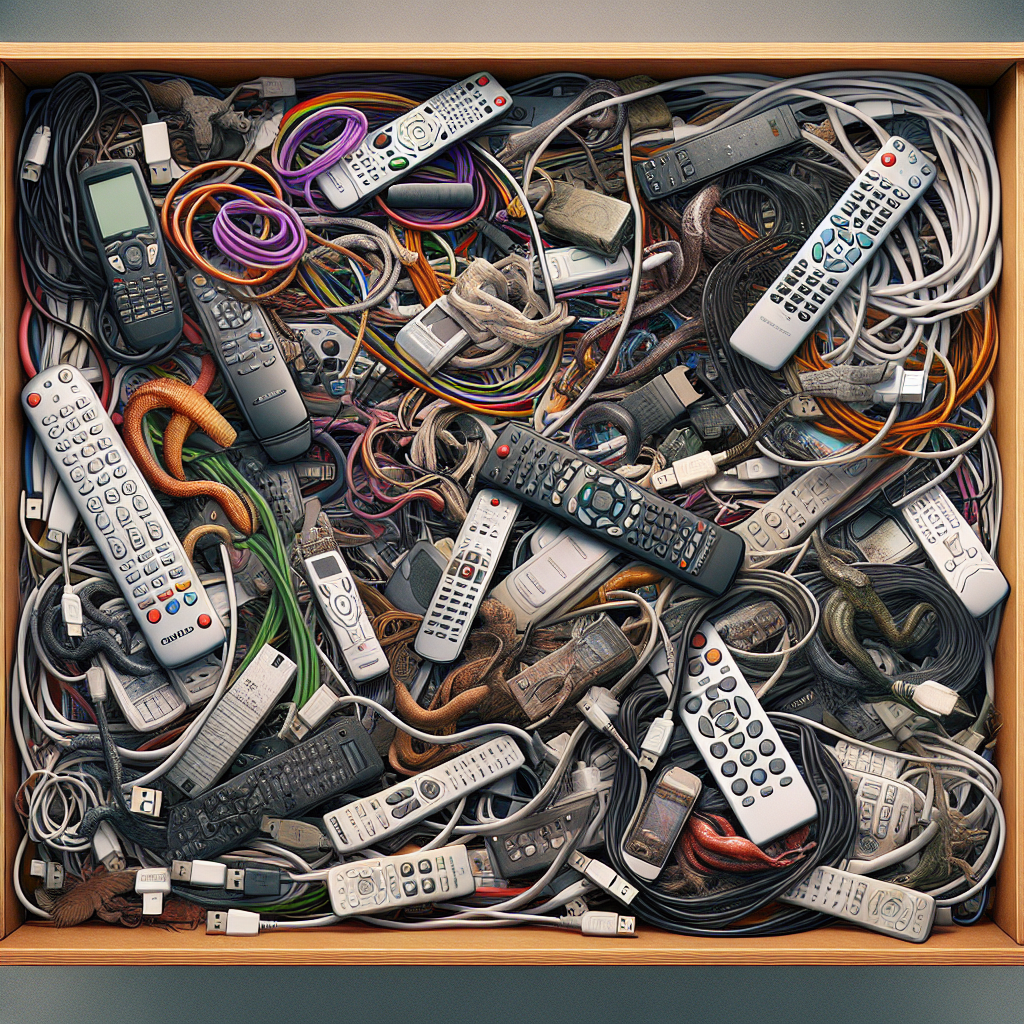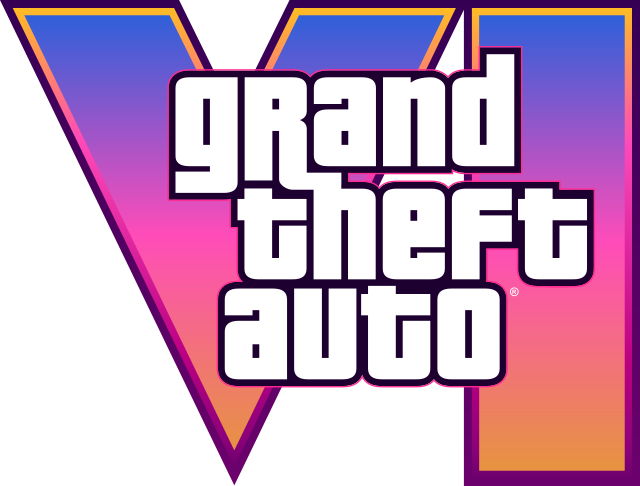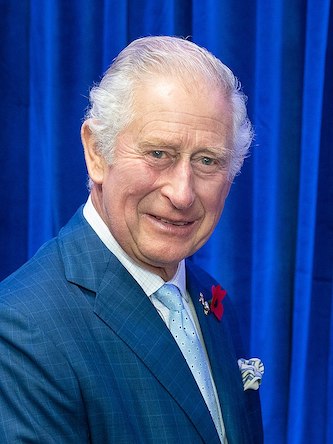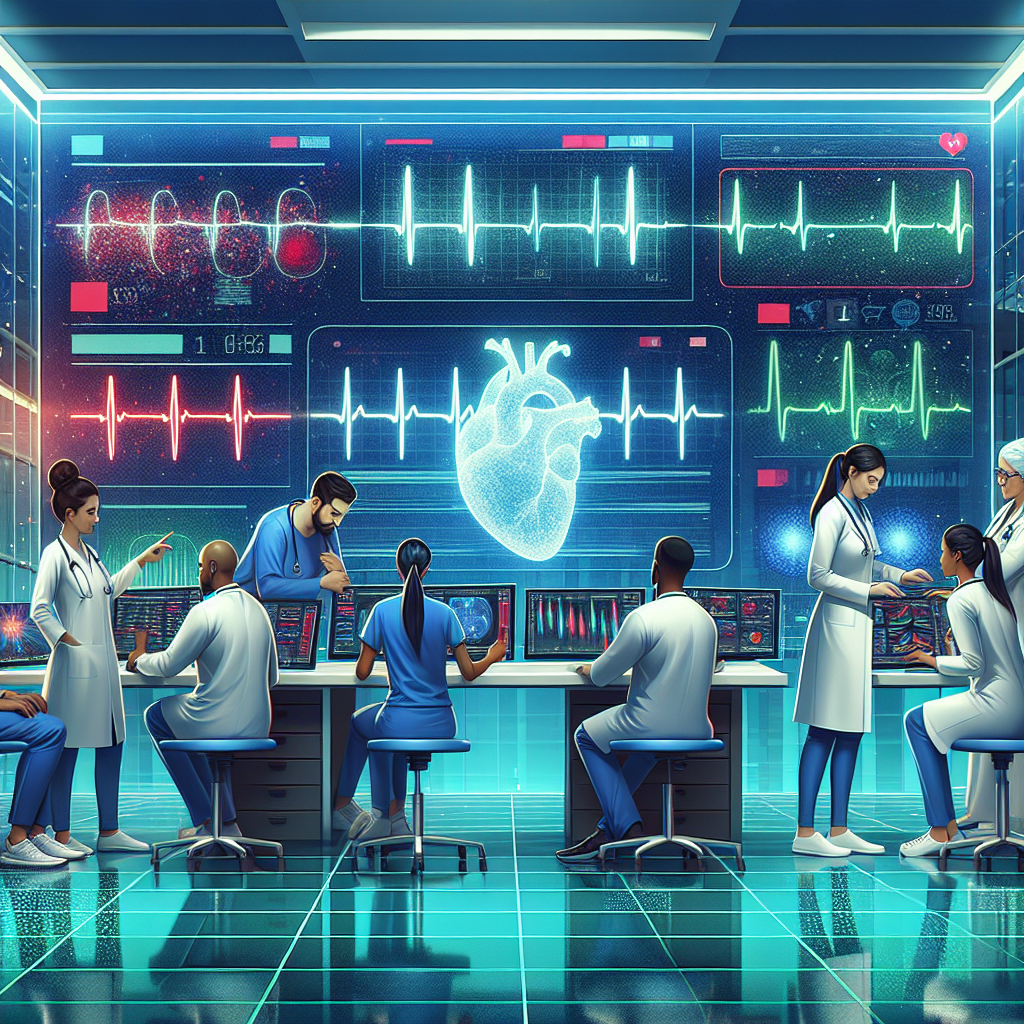A group called Material Focus says that people are keeping too many old electronics at home, like phones and hairdryers. Before, people kept around 20 old items, but now they have about 30. The United Nations says we are making a lot more electronic trash than we are recycling. Material Focus found that in the UK, there are over 880 million old electronics not being used.
Scott Butler from Material Focus says that the old electronics people throw away or keep are worth a lot of money, more than £1 billion. These old items have important materials like gold and copper that are needed for new technology. Getting these materials from the earth can hurt animals and the environment. A person named Sarah Burns says we should use our electronics for a longer time and share things we don’t use often.
Material Focus also found that people are throwing away a lot of electronics that could be recycled. They think that a lot of electronic waste is either being stolen or sent to other countries illegally. They learned this by asking 2,000 people in the UK about their habits.
Original news source: E-waste drawers of doom growing, say campaigners (BBC)
🎧 Listen:
Slow
Normal
Fast
📖 Vocabulary:
| 1 | electronics | Things like phones and computers that we use every day |
| 2 | recycling | Turning old stuff into new stuff so we don’t waste |
| 3 | environment | The air, water, and land around us where plants and animals live |
| 4 | materials | The stuff things are made from |
| 5 | technology | The use of science for practical purposes, especially in industry |
| 6 | copper | A kind of metal that is orange-brown and used in wires and coins |
| 7 | gold | A shiny, yellow metal that is very expensive and used in jewelry |
| 8 | valuable | Worth a lot of money or very important |
| 9 | share | To let someone else use something you have |
| 10 | stolen | Taken without permission |
| 11 | illegal | Not allowed by the law |
| 12 | habits | The things we do often without thinking about them |
Group or Classroom Activities
Warm-up Activities:
– Charades
Instructions: Divide the class into two teams. Give each team a list of electronic items mentioned in the article. One person from each team will act out a word or phrase related to the electronic item without speaking, while their team tries to guess what it is. The team with the most correct guesses wins.
– News Summary
Instructions: Have the students read the article individually or in pairs. Then, ask them to write a summary of the article in their own words. After they have finished, have them share their summaries with a partner and discuss any differences or similarities.
– Opinion Poll
Instructions: Write the following question on the board: “Do you think people should keep or recycle old electronics?” Have the students stand on opposite sides of the classroom to indicate their opinion. Ask a few students from each side to explain their reasoning.
– Vocabulary Pictionary
Instructions: Create a list of vocabulary words from the article on the board. Divide the class into pairs. Give each pair a piece of paper and a pen. One student from each pair will choose a word from the list and draw a picture to represent it, while their partner tries to guess the word. The pair with the most correct guesses wins.
– Future Predictions
Instructions: Discuss with the class the potential consequences of not recycling old electronics, as mentioned in the article. Then, ask the students to work in pairs and come up with three future predictions related to this topic. They should write their predictions on a piece of paper and share them with the class. Encourage them to use modal verbs (e.g. “might,” “could,” “will”) to express uncertainty.
🤔 Comprehension Questions:
1. What is Material Focus concerned about?
2. How many old electronics did people used to keep, and how many do they keep now?
3. How many old electronics are not being used in the UK?
4. Why are the old electronics worth a lot of money?
5. Why is it bad to get the materials for new technology from the earth?
6. What does Sarah Burns suggest we do with our electronics?
7. How did Material Focus find out that a lot of electronic waste is being thrown away or sent to other countries illegally?
Go to answers ⇩
🎧✍️ Listen and Fill in the Gaps:
A group (1)______ Material Focus says that people are keeping too many old (2)______s at home, like (3)______ and hairdryers. Before, people kept around 20 old items, but now they have about 30. The United Nations says we are making a lot more electronic trash than we are recycling. Material Focus found that in the UK, there are over 880 million old (4)______ not being used.
Scott Butler from Material Focus says that the old electronics people throw away or keep are (5)______ a lot of money, more than £1 billion. These old (6)______ have important materials like gold and copper that are (7)______ for new technology. Getting these materials from the (8)______ can hurt animals and the (9)______. A person named Sarah Burns says we should use our electronics for a longer time and share things we don’t use often.
Material Focus also found that people are throwing away a lot of electronics that could be (10)______. They think that a lot of electronic waste is either being stolen or sent to other (11)______ illegally. They (12)______ this by asking 2,000 people in the UK about their habits.
Go to answers ⇩
💬 Discussion Questions:
Students can ask a partner these questions, or discuss them as a group.
1. What are some examples of old electronics that people keep at home?
2. How would you feel if you had 30 old electronics at home?
3. Do you like keeping old electronics or throwing them away? Why or why not?
4. What do you think is the reason why people are keeping more old electronics now?
5. What are some important materials found in old electronics?
6. Why is it bad to get these materials from the earth?
7. How would you feel if someone took your old electronics and recycled them?
8. Do you think people should use their electronics for a longer time? Why or why not?
9. What are some ways people can share things they don’t use often?
10. Why do you think people throw away electronics that could be recycled?
11. Do you think it’s right for people to steal electronic waste or send it to other countries illegally? Why or why not?
12. How can we encourage people to recycle their old electronics instead of throwing them away?
Individual Activities
📖💭 Vocabulary Meanings:
Match each word to its meaning.
Words:
1. electronics
2. recycling
3. environment
4. materials
5. technology
6. copper
7. gold
8. valuable
9. share
10. stolen
11. illegal
12. habits
Meanings:
(A) The things we do often without thinking about them
(B) To let someone else use something you have
(C) A shiny, yellow metal that is very expensive and used in jewelry
(D) Not allowed by the law
(E) The air, water, and land around us where plants and animals live
(F) Taken without permission
(G) The use of science for practical purposes, especially in industry
(H) A kind of metal that is orange-brown and used in wires and coins
(I) Things like phones and computers that we use every day
(J) Turning old stuff into new stuff so we don’t waste
(K) Worth a lot of money or very important
(L) The stuff things are made from
Go to answers ⇩
🔡 Multiple Choice Questions:
1. According to Material Focus, what are people keeping too many of at home?
(a) Books
(b) Clothes
(c) Old electronics
(d) Toys
2. How many old items did people used to keep before?
(a) Around 30
(b) Around 20
(c) Around 40
(d) Around 50
3. What does the United Nations say about electronic trash and recycling?
(a) We are making more trash than we are recycling
(b) We are recycling more than we are making trash
(c) We are making the same amount of trash and recycling
(d) We are not making any electronic trash
4. How many old electronics not being used are there in the UK?
(a) Over 880 million
(b) Over 1 billion
(c) Over 500 million
(d) Over 2 billion
5. According to Scott Butler, how much are the old electronics worth?
(a) More than £500 million
(b) More than £2 billion
(c) More than £1 billion
(d) More than £10 billion
6. What important materials do old electronics have?
(a) Silver and iron
(b) Gold and copper
(c) Platinum and aluminum
(d) Titanium and zinc
7. What does Sarah Burns suggest we should do with our electronics?
(a) Throw them away and buy new ones
(b) Recycle them immediately
(c) Sell them to other countries
(d) Use them for a longer time and share things we don’t use often
8. How did Material Focus find out that a lot of electronic waste is being stolen or sent to other countries illegally?
(a) By conducting a survey with 2,000 people in the UK
(b) By interviewing 2,000 people in the UK
(c) By researching online about electronic waste
(d) By asking 2,000 people in the UK about their habits
Go to answers ⇩
🕵️ True or False Questions:
1. The United Nations says that we are creating more electronic trash than we are recycling.
2. Getting these materials from the earth cannot harm animals and the environment.
3. Scott Butler from Material Focus says that the old electronics people throw away or keep are worth less than £1 billion.
4. These old electronics contain valuable materials like gold and copper that are needed for new technology.
5. A group called Material Focus says that people are keeping more old electronics at home now than before.
6. Sarah Burns suggests that we should not use our electronics for a longer time and keep things we don’t use often.
7. Material Focus found that in the UK, there are over 880 million old electronics that are not being used.
8. Material Focus believes that a lot of electronic waste is neither being stolen nor sent to other countries illegally.
Go to answers ⇩
📝 Write a Summary:
Write a summary of this news article in two sentences.
Check your writing now with the best free AI for English writing!
Writing Questions:
Answer the following questions. Write as much as you can for each answer.
Check your answers with our free English writing assistant!
1. What is Material Focus saying that people are keeping too many of at home?
2. How many old electronics did people used to keep, and how many do they have now?
3. What does the United Nations say about electronic trash and recycling?
4. According to Scott Butler, how much are the old electronics that people throw away or keep worth?
5. What does Sarah Burns suggest people do with their electronics?
✅ Answers
🤔✅ Comprehension Question Answers:
1. What is Material Focus concerned about?
Material Focus is concerned about people keeping too many old electronics at home and not recycling them properly.
2. How many old electronics did people used to keep, and how many do they keep now?
Before, people used to keep around 20 old items, but now they keep about 30.
3. How many old electronics are not being used in the UK?
There are over 880 million old electronics not being used in the UK.
4. Why are the old electronics worth a lot of money?
The old electronics are worth a lot of money because they have important materials like gold and copper that can be used for new technology.
5. Why is it bad to get the materials for new technology from the earth?
Getting the materials for new technology from the earth can hurt animals and the environment.
6. What does Sarah Burns suggest we do with our electronics?
Sarah Burns suggests that we should use our electronics for a longer time and share things we don’t use often.
7. How did Material Focus find out that a lot of electronic waste is being thrown away or sent to other countries illegally?
Material Focus found out that a lot of electronic waste is being thrown away or sent to other countries illegally by asking 2,000 people in the UK about their habits.
Go back to questions ⇧
🎧✍️✅ Listen and Fill in the Gaps Answers:
(1) called
(2) electronic
(3) phones
(4) electronics
(5) worth
(6) items
(7) needed
(8) earth
(9) environment
(10) recycled
(11) countries
(12) learned
Go back to questions ⇧
📖💭✅ Vocabulary Meanings Answers:
1. electronics
Answer: (I) Things like phones and computers that we use every day
2. recycling
Answer: (J) Turning old stuff into new stuff so we don’t waste
3. environment
Answer: (E) The air, water, and land around us where plants and animals live
4. materials
Answer: (L) The stuff things are made from
5. technology
Answer: (G) The use of science for practical purposes, especially in industry
6. copper
Answer: (H) A kind of metal that is orange-brown and used in wires and coins
7. gold
Answer: (C) A shiny, yellow metal that is very expensive and used in jewelry
8. valuable
Answer: (K) Worth a lot of money or very important
9. share
Answer: (B) To let someone else use something you have
10. stolen
Answer: (F) Taken without permission
11. illegal
Answer: (D) Not allowed by the law
12. habits
Answer: (A) The things we do often without thinking about them
Go back to questions ⇧
🔡✅ Multiple Choice Answers:
1. According to Material Focus, what are people keeping too many of at home?
Answer: (c) Old electronics
2. How many old items did people used to keep before?
Answer: (b) Around 20
3. What does the United Nations say about electronic trash and recycling?
Answer: (a) We are making more trash than we are recycling
4. How many old electronics not being used are there in the UK?
Answer: (a) Over 880 million
5. According to Scott Butler, how much are the old electronics worth?
Answer: (c) More than £1 billion
6. What important materials do old electronics have?
Answer: (b) Gold and copper
7. What does Sarah Burns suggest we should do with our electronics?
Answer: (d) Use them for a longer time and share things we don’t use often
8. How did Material Focus find out that a lot of electronic waste is being stolen or sent to other countries illegally?
Answer: (d) By asking 2,000 people in the UK about their habits
Go back to questions ⇧
🕵️✅ True or False Answers:
1. The United Nations says that we are creating more electronic trash than we are recycling. (Answer: True)
2. Getting these materials from the earth cannot harm animals and the environment. (Answer: False)
3. Scott Butler from Material Focus says that the old electronics people throw away or keep are worth less than £1 billion. (Answer: False)
4. These old electronics contain valuable materials like gold and copper that are needed for new technology. (Answer: True)
5. A group called Material Focus says that people are keeping more old electronics at home now than before. (Answer: True)
6. Sarah Burns suggests that we should not use our electronics for a longer time and keep things we don’t use often. (Answer: False)
7. Material Focus found that in the UK, there are over 880 million old electronics that are not being used. (Answer: True)
8. Material Focus believes that a lot of electronic waste is neither being stolen nor sent to other countries illegally. (Answer: False)
Go back to questions ⇧















